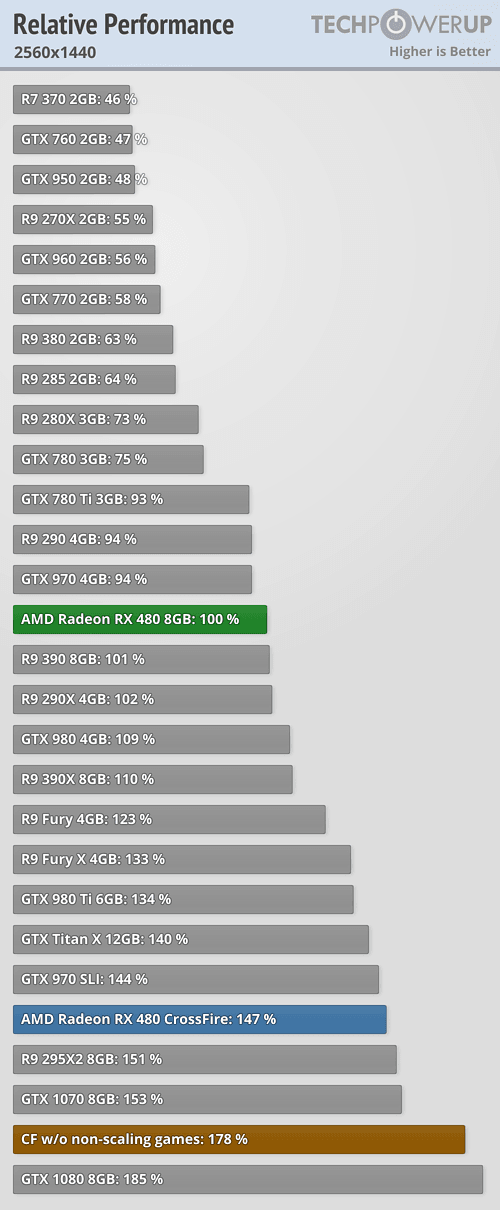ShockInfantry :
I have been hearing about the 1060s, but I am mostly worried over the price being jacked up much over msrp, much like the new cards this year been subjected too. Would a 1060 be that much better compared to a RX480 or 390x even with freesync to their favor? Just mainly aiming for a card under $300 for now.
Again... the 480 / 1060 are ideal 1080 cards.... but you want 1440p. Will you n=be satisfied with these fps ?
Anno 2025 24.9
Assassins Creed; Syndicate 28.0
BF3 77.0
BF4 46.5
Batman: Arkham Knight 73.5
COD: Black Ops 3 51.5
Crysis 3 26.5
Fallout 4 68.9
Far Cry Primal 43.4
GTAV 51.3
Hitman 44.0
Just Cause 3 59.1
Rainbow Six Siege 75.9
Rise of the Tomb Raider 45.9
Witcher 3 41.3
That's the test results from TechPowerUps 15 game test suite. Recognize however that:
a) The Nitro won't score as well as MSI Gaming X
b) The MSI 480 Gaming X is $50 more than the Nitro
However, what is interesting is that the MSI 1060 and 480 Gaming X's have the exact same cost per fps of $0.036 so on the cost per frame basis Out of the box), it's a wash. The 1060 ($0.31) does a bit better then the 480 ($0.33) when both cards are overclocked. Overclocked, the 1060 averages 11% faster but costs 7% more. So the two cards are actually very competitive, .... but here you have the FreeSync monitor so the 480 is pretty much a no brainer.
However, given that the average fps is just 50 fps, w/ 20% of the games below 30 fps and another 33% are in the 40s, I would proceed as follows....
1. Get a solid AIB RX 480 ... there's a lot of difference between which one you choose ... the Nitro performs alower than the reference cards
http://www.legitreviews.com/sapphire-nitro-radeon-rx-480-4gb-video-card-review_184553/11
On paper the Sapphire Nitro Radeon RX 480 looks to be a damn near perfect custom designed card by a board partner. After using the Nitro Radeon RX 480 4GB for a very short period of time it left me feeling like I boarded the hype train. For starters the performance of this factory overclocked card is lower than that of the Radeon RX 480 8GB reference card despite having a higher boost clock speed of 1306MHz. I
The Asus Strix was 6 % faster than the reference card, the MSI Gaming X was 12% faster.
2. Once ya wallet recovers from the 480, grab a 2nd one along with new PSU ... keep in mind that the AIB cards will be drawing close to 200 watts each ...An EVGA B2 750, usually available for about $50-$60, should do just fine.
The other option of course is to wait for the 490



